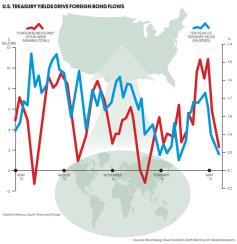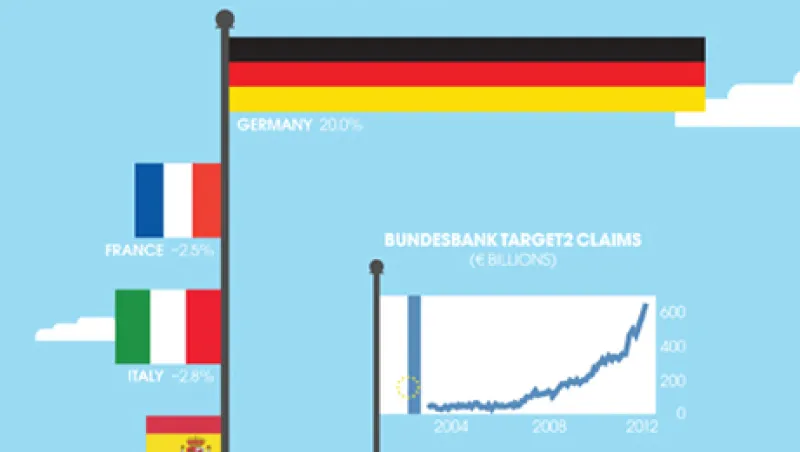European Union leaders held yet another summit meeting in June, and by their standards the agreement was significant: a loosening of restrictions on using EU bailout funds and the first steps toward a euro area banking union. But the measures fail to address the key economic divergences that are the root of the bloc’s problems. German reforms since the start of monetary union have dramatically improved the country’s competitiveness against virtually all of its partners. Greece’s problems are well known, but even France and the Netherlands have seen their competitiveness deteriorate. Germany is demanding that other countries bring their costs into line with its own before it will consider any permanent fiscal solution, such as euro bonds. In the meantime, funds flee Greek and Spanish banks, forcing those countries to borrow some €700 billion ($860 billion), or 27 percent of Germany’s GDP, from the Bundesbank through the Target2 payment system. The big question: Will those claims persuade Germany to accept a fiscal union, ending the crisis, or prompt a nervous Berlin to pull the plug on the euro?






